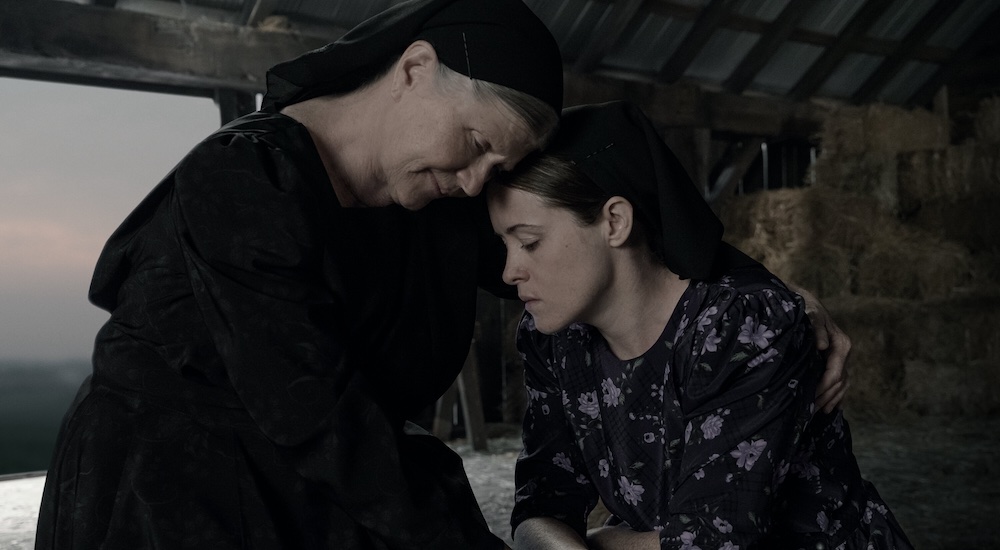Before we’ve begun, Women Talking lets us know that this film is “an act of female imagination.” Although the basics of the story are based on an isolated community in Bolivia and a book about a Mennonite community by Miriam Toews, the film feels more true to its opening statement, a cinematic thought experiment carried out with little fanfare by excellent actors. It may not be the most exciting film of the holiday season, but it, like its characters, simply asks you to sit down and listen.
Women Talking takes place in 2010 in an isolated Mennonite community. After years of waking up with bruises, injuries, and confusion, the women have just confirmed that they’ve been continually drugged and attacked during the night and have caught one such attacker, who names the others. The accused are carted off to the local police station by the other men for their protection and leave the women behind to quickly decide what they will do before the men return: do nothing, stay and fight, or leave. After a vote leaves things tied, three families are elected to have a discussion and make a decision.
Similar to 12 Angry Men, the film centers almost solely on this discussion, with various flashbacks that make past attacks much more visceral, without showing the attack itself. With so much resting on the actors, Polley has brought together a cast of already-established powerhouses. Rooney Mara plays unmarried, pregnant dreamer Ona, Claire Foy plays the angry Salome, Jessie Buckley plays a sarcastic, negative Mariche, and Frances McDormand plays the conservative Scarface Janz, among many other talented women. Ben Whishaw is the only man in the cast, as a soft-spoken teacher tasked with taking the meeting minutes. Shot in desaturated colors that look black and white, the women go around making their arguments and it’s impossible to look away as they grapple with how to balance protecting themselves and their children with how to coexist with men and their attackers.
Women Talking can feel like Sarah Polley’s stream of consciousness, working out her feelings on feminism and women’s rights in real-time through these actors. It’s easy to see the script as you watch the film, you can practically see the pages flipping in front of you. With such a strong cast, each gets their turn at an emotional monologue that can sometimes feel like each actor’s saying “for your consideration” at the end of their speech. But this is not a film concerned with feeling naturalistic or real. Instead, it just asks us to actively listen to these women and their points of view and to consider our own views.
Sarah Polley’s new film certainly won’t be for everyone. It’s a quiet film full of quiet anger from an excellent cast, a small group of women finding community and triumph within themselves in the face of violence and oppression. Set in a community that encourages silence, Women Talking is a spellbinding capsule of women refusing to be silent.

